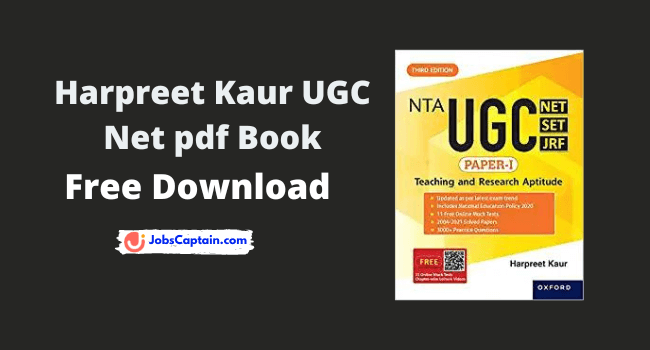| Unit | Contents/Syllabus |
| 1 | Teaching Aptitude- Teaching: Concept, Objectives, Levels of Teaching (Memory, Understanding and Reflective), Characteristics and Basic Requirements.
- Learner’s characteristics: Characteristics of Adolescent and Adult Learners (Academic, Social, Emotional and Cognitive), Individual Differences.
- Factors Affecting Teaching Related to: Teacher, Learner, Support material, Instructional Facilities, Learning Environment and Institution.
- Methods of Teaching in Institutions of Higher Learning: Teacher-centred vs Learner-centred Methods; Off line vs On line Methods (Swayam, Swayamprabha, MOOCs, etc.).
- Teaching Support System: Traditional, Modern, and ICT Based.
- Evaluation Systems: Elements and Types of Evaluation, Evaluation in Choice Based Credit System in Higher Education, Comp
|
| 2 | Research Aptitude - Research: Meaning, Types, and Characteristics, Positivism and Post-positivistic Approach to Research.
- Methods of Research: Experimental, Descriptive, Historical, Qualitative and Quantitative Methods.
- Steps of Research.
- Thesis and Article Writing: Format and Styles of Referencing.
- Applications of ICT in Research.
- Research Ethics.
|
| 3 | Comprehension- A passage of text be given. Questions be asked from the passage to be answered.
|
| 4 | Communication- Communication: Meaning, Types and Characteristics of Communication.
- Effective Communication: Verbal and Non-verbal, Inter-cultural and Group Communications, Classroom Communication.
- Barriers to Effective Communication.
- Mass Media and Society.
|
| 5 | Mathematical Reasoning and Aptitude- Types of Reasoning.
- Number Series, Letter Series, Codes and Relationships.
- Mathematical Aptitude (Fraction, Time and Distance, Ratio, Proportion and Percentage, Profit and Loss, Interest and Discounting, Averages etc.).
|
| 6 | Logical Reasoning- Understanding the Structure of Arguments: Argument Forms, Structure of Categorical Propositions, Mood and Figure, Formal and Informal Fallacies, Uses of language, Connotations and denotations of Terms, Classical Square of opposition.
- Evaluating and Distinguishing Deductive and Inductive Reasoning.
- Analogies.
- Venn Diagram: Simple and Multiple Use for Establishing Validity of Arguments.
- Indian Logic: Means of Knowledge.
- Pramanas: Pratyaksha (Perception), Anumana (Inference), Upamana (Comparison), Shabda (Verbal testimony), Arthapatti (Implication) and Anupalabddhi (Non-apprehension).
- Structure and Kinds of Anumana (Inference), Vyapti (Invariable Relation), Hetvabhasas (Fallacies of Inference).
|
| 7 | Data Interpretation- Sources, Acquisition and Classification of Data.
- Quantitative and Qualitative Data.
- Graphical Representation (Bar-chart, Histograms, Pie-chart, Table-chart and Line-chart) and Mapping of Data.
- Data Interpretation.
- Data and Governance.
|
| 8 | Information and Communication Technology- ICT: General abbreviations and terminology.
- Basics of Internet, Intranet, E-mail, Audio and Video-conferencing.
- Digital initiatives in higher education.
- ICT and Governance.
|
| 9 | People, Development, and Environment- Development and Environment: Millennium Development and Sustainable Development Goals.
- Human and environment interaction: Anthropogenic Activities and Their Impact on Environment.
- Environmental Issues: Local, Regional and Global; Air pollution, Water Pollution, Soil Pollution, Noise Pollution, Waste (Solid, Liquid, Biomedical, Hazardous, Electronic), Climate Change and its Socio-Economic and Political Dimensions.
- Impacts of Pollutants on Human Health.
- Natural and Energy Resources: Solar, Wind, Soil, Hydro, Geothermal, Biomass, Nuclear, and Forests.
- Natural Hazards and Disasters: Mitigation Strategies.
- Environmental Protection Act (1986), National Action Plan on Climate Change, International Agreements/efforts -Montreal Protocol, Rio Summit, Convention on Biodiversity, Kyoto Protocol, Paris Agreement, International Solar Alliance.
|
| 10 | Higher Education System- Institutions of higher learning and education in Ancient India.
- Evolution of Higher learning and research in Post-Independence India.
- Oriental, Conventional, and Non-conventional Learning Programmes in India.
- Professional, Technical, and Skill-based Education.
- Value Education and Environmental Education.
- Policies, Governance, and Administration.
|

